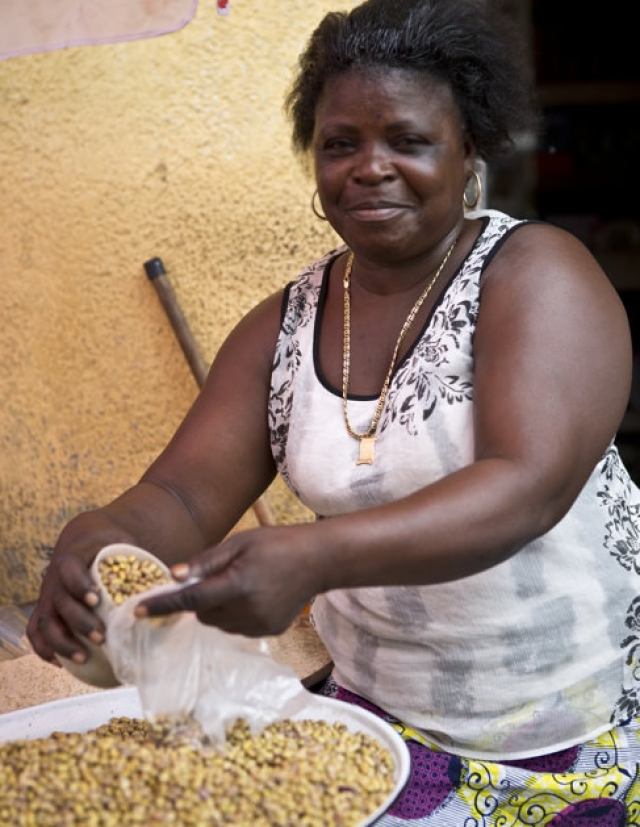Diabetes burden rising sharply in the African Region
 Diabetes is expected to become the seventh global leading cause of death by 2030. In 2012, diabetes was the direct cause of 1.5 million deaths worldwide and statistics indicate that the risk of dying among people with diabetes is at least double that of their peers without diabetes.
Diabetes is expected to become the seventh global leading cause of death by 2030. In 2012, diabetes was the direct cause of 1.5 million deaths worldwide and statistics indicate that the risk of dying among people with diabetes is at least double that of their peers without diabetes.
Diabetes is a chronic disease, which occurs when the pancreas does not produce enough insulin, or when the body cannot effectively use the insulin it produces. Symptoms of diabetes include excessive thirst, constant hunger, marked weight loss, increased excretion of urine, altered vision and fatigue.
There are three types of diabetes: type 1, type 2 and gestational diabetes. Type 2 diabetes is the most common and accounts for about 90% of all diabetes worldwide. In sub-Saharan Africa, type 2 diabetes affects about 8% of people above the age of 25.
Reports of type 2 diabetes in children – previously rare – is a growing concern in the African Region. In some countries, children and adolescents account for almost half of all newly diagnosed cases of type 2 diabetes. The age of onset of diabetes is a critical indicator of developing complications throughout life. Over time, diabetes can cause damage to the heart, blood vessels, eyes, kidneys, and nerves.
Diabetes is a leading cause of blindness, amputation, kidney failure, and increases the risk of heart disease and stroke. Cardiovascular disease is responsible for between 50% and 80% of deaths in people with diabetes.
Combined with reduced blood flow, diabetes damages the nerves in the feet and combined with its effect on reduction of blood flow to the feet, increases the chance of foot ulcers, infection and eventual need for limb amputation. In the African Region, diabetic foot is a significant cause of prolonged hospital stays for people with diabetes.
There is a huge unmet need in terms of access to prevention and control interventions for diabetes in the African Region. Strong evidence suggests that at least 80% of type 2 diabetes and its complications can be prevented through lifestyle factors. To prevent type 2 diabetes and its complications, people should:
- achieve and maintain a healthy body weight;
- be physically active – at least 30 minutes of regular, moderate-intensity activity on most days of the week. More activity is required for weight control;
- eat a healthy diet of between three and five servings of fruit and vegetables a day and reduce sugar, salt and saturated fats intake;
- avoid tobacco use – smoking increases the risk of cardiovascular diseases; and
- receive regular fasting blood sugar testing.
Scaling-up proven interventions has been hindered by the scarcity of resources, inadequate awareness, limited data, and insufficient access to health services and essential medicines. A coordinated local, national and international response is needed to reduce exposure to the known risk factors for diabetes and to ensure integrated functional health systems.
According to Dr Matshidiso Moeti, the WHO Regional Director for Africa, “WHO AFRO is working tirelessly with the 47 Member States in the Region to build and reinforce health systems and implement key interventions that are critical in combating noncommunicable diseases such as diabetes and improving the overall health of people in the Region.”
In alignment with the Global Action Plan for the Prevention and Control of NCDs 2013-2020, the WHO Regional Office for Africa aims to support national efforts to reduce the preventable and avoidable burden of morbidity, mortality and disability due to diabetes. This is achieved by the development of policies, implementation of best practices, and piloting or scaling up of the WHO Package of essential NCD interventions for primary health care.
Allowing populations to reach the highest attainable standards of health and productivity requires giving high priority to the prevention and control of diabetes. Increasing awareness, boosting advocacy, promoting modifiable risk factors, and implementing cost effective integrated health systems are priority interventions in the fight against diabetes in the African Region.
___________________________________
For more information, please contact:
Technical contacts:
Dr Steven Shongwe; Tel: +472 413 9240; Email: shongwes [at] who.int (shongwes[at]who[dot]int)
Dr Prebo Barango; Tel: +472 413 8033; Email: barangop [at] who.int (barangop[at]who[dot]int)
Media contacts:
Dr Cory Couillard; Tel: + 472 413 9995; Email: couillardc [at] who.int (couillardc[at]who[dot]int)
Mr Collins Boakye-Agyemang; Tel: + 472 413 9420; Email: boakyeagyemangc [at] who.int (boakyeagyemangc[at]who[dot]int)


